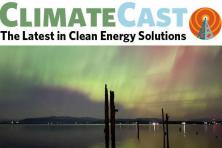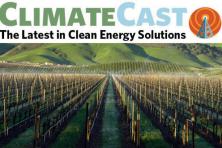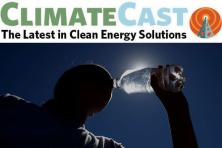a joint statement from Climate Solutions and Audubon Washington
This morning, the House Environment & Energy Committee voted to move HB 1110, the Clean Fuel Standard, out of committee. The bill will now move to the House Transportation Committee. Concurrently, the Puget Sound Clean Air Agency (PSCAA) said it will proceed with rulemaking for a regional Clean Fuel Standard for King, Pierce, Kitsap, and Snohomish counties.
HB 1110 would require oil refiners and importers to reduce the carbon intensity of fuels by 20 percent by 2035, supporting expanded transportation electrification, and creating more homegrown jobs in the production of clean, low-carbon fuels. The PSCAA is also moving forward with a similar regulation at the regional level.
The PSCAA prefers state legislative action, but is prepared to implement a rule if the state does not act. Craig Kenworthy shared his support for passage of a statewide policy at last week’s House Committee hearing on HB 1110, stating, “The bottom line: A low carbon fuel standard reduces greenhouse gas emissions, particulate matter, smog and ozone… [PSCAA] may look at a more aggressive standard… we prefer the state to act but we will if it does not.” The PSCAA adopted economy-wide emissions targets of 50 percent below 1990 levels by 2030. A regional or statewide clean fuel standard is a critical component of meeting these targets.
Today’s House Committee action and PSCAA proceeding reflects the strong show of support, demonstrated at last week’s House Committee hearing from business leaders in the clean fuels and electrification sectors, health professionals, and community members. In addition to the inherent health benefits of the policy, testimony focused on increased investments in the local statewide economy that would result from passage of HB 1110, as well as the potential for new job growth in the renewable energy sector. Many businesses highlighted how Washington State is missing out on a clean fuels market compared to British Columbia, Oregon, and California which each have a clean fuel standard in place.
Ryan Calkins, a commissioner for the Port of Seattle who testified on behalf of the Port and NW Seaport Alliance said the lack of a clean fuel standard in Washington is a lost opportunity for jobs and market creation. Calkins noted: “Clean fuel sources developed in our state should benefit Washington and the overall health of Washington residents… and support jobs in our renewable energy sector, rather than send those fuels outside our state to California and Oregon.” The Port of Seattle has also adopted aggressive goals to reduce greenhouse gas emissions from its own operations by 50 percent from 2005 levels by 2030 and to be carbon neutral or carbon negative by 2050.
HB 1110 is also supported by leading public health organizations, including the American Lung Association and WA Physicians for Social Responsibility who see a Clean Fuel Standard as one of the most important ways to improve public health by decreasing sources of air pollution. Reduced emissions and cleaner air has direct positive health impacts and reduces public health costs across all communities. Carrie Nyssen of the American Lung Association said last week, “We’re already paying for air pollution through insurance premiums, lost productivity, and premature deaths.” Lower income communities and communities of color who are often closer to major transportation corridors are even more impacted. For example, for those living in the Duwamish Valley, diesel particulate pollution contributes to a reduction in life expectancy by thirteen years compared to other parts of King County.
Audubon Washington, Climate Solutions, Washington Environmental Council, Washington Conservation Voters, the Union of Concerned Scientists, and a growing coalition of environmental, public health, clean energy, and conservation organizations support passage of a mix of complementary policy solutions to achieve meaningful carbon pollution reductions and have maximum impact to address the growing climate crisis, accelerate the transition to a clean energy economy and ensure a sustainable future.
For more on last week’s House Committee Hearing on HB 1110 please see http://bit.ly/2Wgelus.About Audubon Washington: Established in 1981, Audubon Washington works statewide with its 25 independent chapters and 35,000 members on the conservation of the sagebrush shrub steppe ecosystem in Eastern Washington, protection of coastal estuaries, and actions that address climate change, the number one threat to birds today. Through the Seward Park Audubon Center, it provides science, nature and environmental education programs for youth and families. Learn more at http://wa.audubon.org/ @audubonWA.
Climate Solutions: Climate Solutions works to accelerate clean energy solutions to the climate crisis. As a Northwest-based clean energy economy nonprofit, Climate Solutions works to achieve a thriving, equitable Northwest, powered by clean energy, inspiring the transition to sustainable prosperity across the nation and beyond. Learn more at Climatesolutions.org @climatesolution.
Washington Environmental Council: is a nonprofit, statewide advocacy organization that has been driving positive change to solve Washington’s most critical environmental challenges since 1967. Our mission is to protect, restore, and sustain Washington’s environment for all.
Washington Conservation Voters: WCV is there at every turn to ensure Washington’s decision makers keep our environment protected, healthy, and vibrant. Over the last 35 years, we have elected environmental champions, held our elected leaders to the highest standard, and built statewide momentum for environmental campaigns through innovative voter outreach efforts and community organizing ensuring all people in Washington have a healthy environment and strong sustainable economy.



